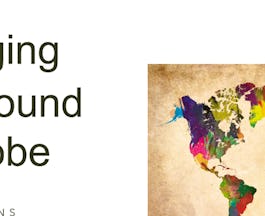Filter by
The language used throughout the course, in both instruction and assessments.
2,036 results for "food"

Meta
Skills you'll gain: Data Management, Software Architecture, Swift Programming

Queen Mary University of London
Skills you'll gain: Market Research

Coursera Project Network
Skills you'll gain: Critical Thinking, Storytelling, Microsoft Excel
In summary, here are 10 of our most popular food courses
- Using AR Foundation in Unity: Meta
- iOS App Capstone: Meta
- Introduction to Market Research: Queen Mary University of London
- Storytelling With Data: Coursera Project Network











